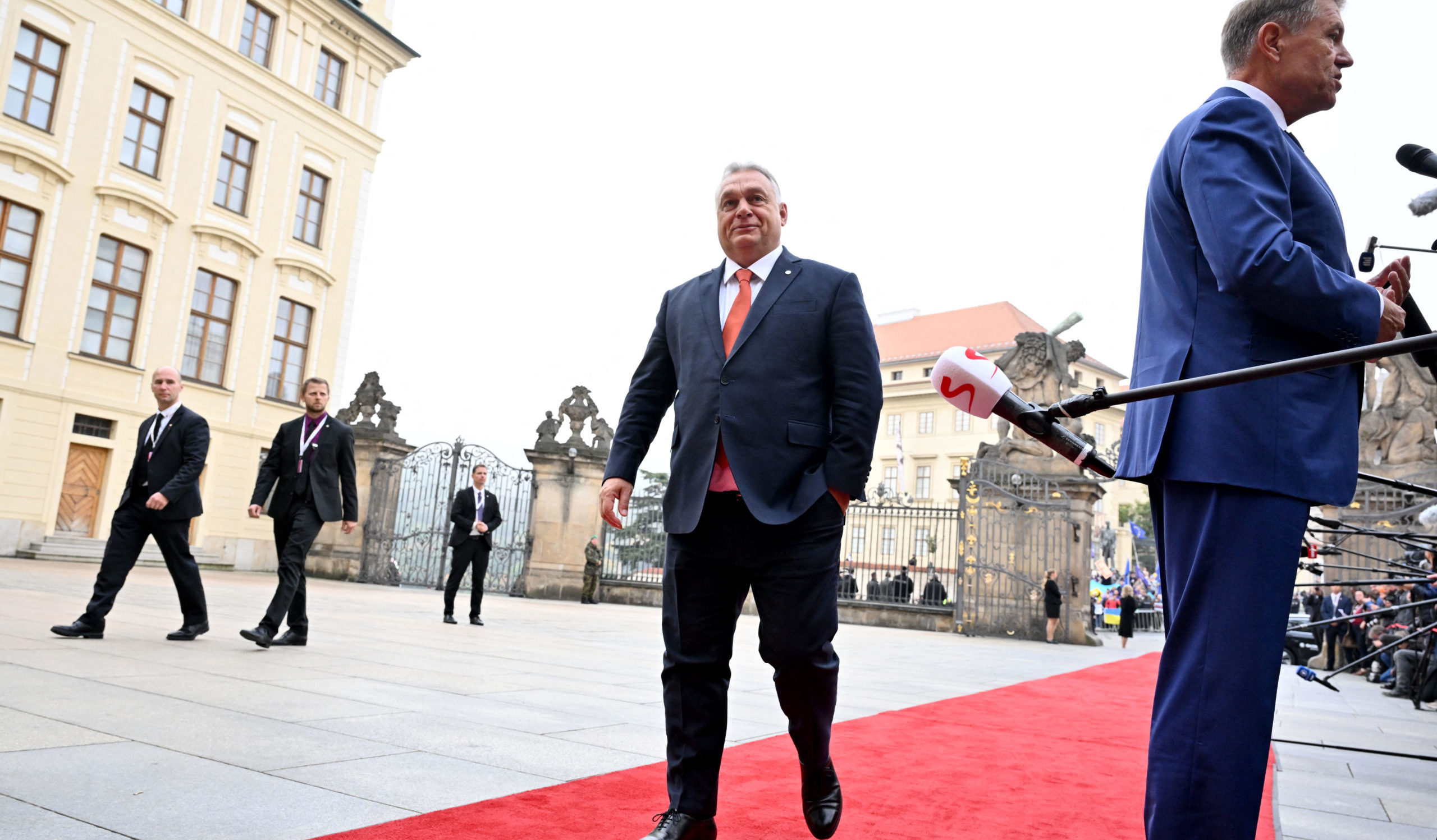Ever since Russia’s invasion of Ukraine began, Hungarian Prime Minister Viktor Orbán has walked a tightrope. He has backed EU sanctions on Russia despite claiming that they are a “step towards war”, and only after fighting for carve-outs for Hungary. His expressions of support for Ukraine have been half-hearted, emphasising the importance of peace rather than outright defeat for Vladimir Putin.
Yet recent days have seen the first signs of a potential change in this awkward balancing act. Strong statements opposing Russia indicate that, ever the pragmatic strategist, Orbán believes the winds are now blowing in favour of Ukrainian victory.
Speaking at an international conference on Saturday, he described the Ukraine war as “clear aggression” from Russia, saying a sovereign Ukraine is needed “to stop Russia posing a threat to the security of Europe.” Such statements are commonplace among most Western leaders but highly surprising coming out of Orbán’s mouth.
The weekend also saw Hungarian President Katalin Novák travel to Kyiv to meet Volodymyr Zelensky. Novak is a close ally of Orbán, having served as his minister for family affairs before becoming president earlier this year. In Kyiv, she stated that “Vladimir Putin’s responsibility for this war is crystal clear.”
Novák’s trip to meet Zelensky, alongside the staunchly pro-Ukraine prime ministers of Poland and Lithuania, marked a change from Hungary’s recent emphasis on diplomatic relations with Russia. Foreign Minister Péter Szijjártó has been a frequent flyer to Russia since the war began, negotiating gas purchases as well as cooperation for a major nuclear power project in Hungary.
It’s possible that Hungary’s new charm offensive towards Ukraine is just another part of Orbán’s calculated ambivalence over the war. Many are also claiming that his shifting stance is linked to a looming decision on EU funds being withheld from Hungary; speculation is rife that Brussels will not approve part of Hungary’s funding despite concessions from Budapest, so Orbán may be keen to show the rest of the EU that he is on their side after all.
Yet while there may be a degree of truth in such arguments, the shift could also indicate something much more significant. All along, Orbán’s ambivalence on the war has been pragmatic, based on the assumption that it is impossible for Ukraine to actually defeat Russia on the battlefield. That might be changing.
In a speech this summer, he claimed Ukraine “will never win a war against Russia” because “the Russian army has asymmetric dominance.” A similar attitude lurked behind his opposition to energy sanctions: Orbán dismissed the notion that the West could win an economic war with Russia, likening EU penalties on Russia to a “dwarf sanctioning a giant.”
Such fatalistic predictions about Russian victory don’t look too clever in light of Ukraine’s liberation of Kherson, with the Russian army on the back foot as winter approaches. Hungarian statements condemning Putin in recent days may be just another part of Orbán’s balancing act. But they could also be a sign that he now fears backing a losing horse in the war in Ukraine.










Join the discussion
Join like minded readers that support our journalism by becoming a paid subscriber
To join the discussion in the comments, become a paid subscriber.
Join like minded readers that support our journalism, read unlimited articles and enjoy other subscriber-only benefits.
Subscribe